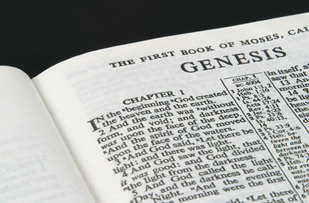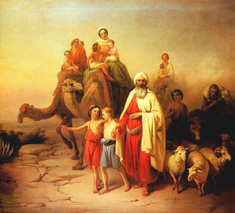 Image: Pixabay
Image: Pixabay The story of Abraham and his descendants is found in the book of Genesis. We first meet him in Genesis chapter 11, although at this stage his name is Abram. There is very little detail about him apart from the fact that he was a shepherd and came from Ur in Mesopotamia - modern day Iraq - after which he and his family moved, with his father Terah, to Haran.
Abraham was the first person to recognise and worship the one God. And so, monotheism was born.
At the beginning of Genesis chapter 12, God asked Abram to leave his home and country and he makes Abram three promises: the promise of a relationship with God, numerous descendants and land (Genesis 12: 1-3).
"I will make you a great nation
And I will bless you;
I will make your name great,
And you will be a blessing
I will bless those who bless you,
And whoever curses you I will curse;
And all the peoples of the earth
Will be blessed through you"
 Abraham and his family Image: Wikipedia
Abraham and his family Image: Wikipedia 

 RSS Feed
RSS Feed
